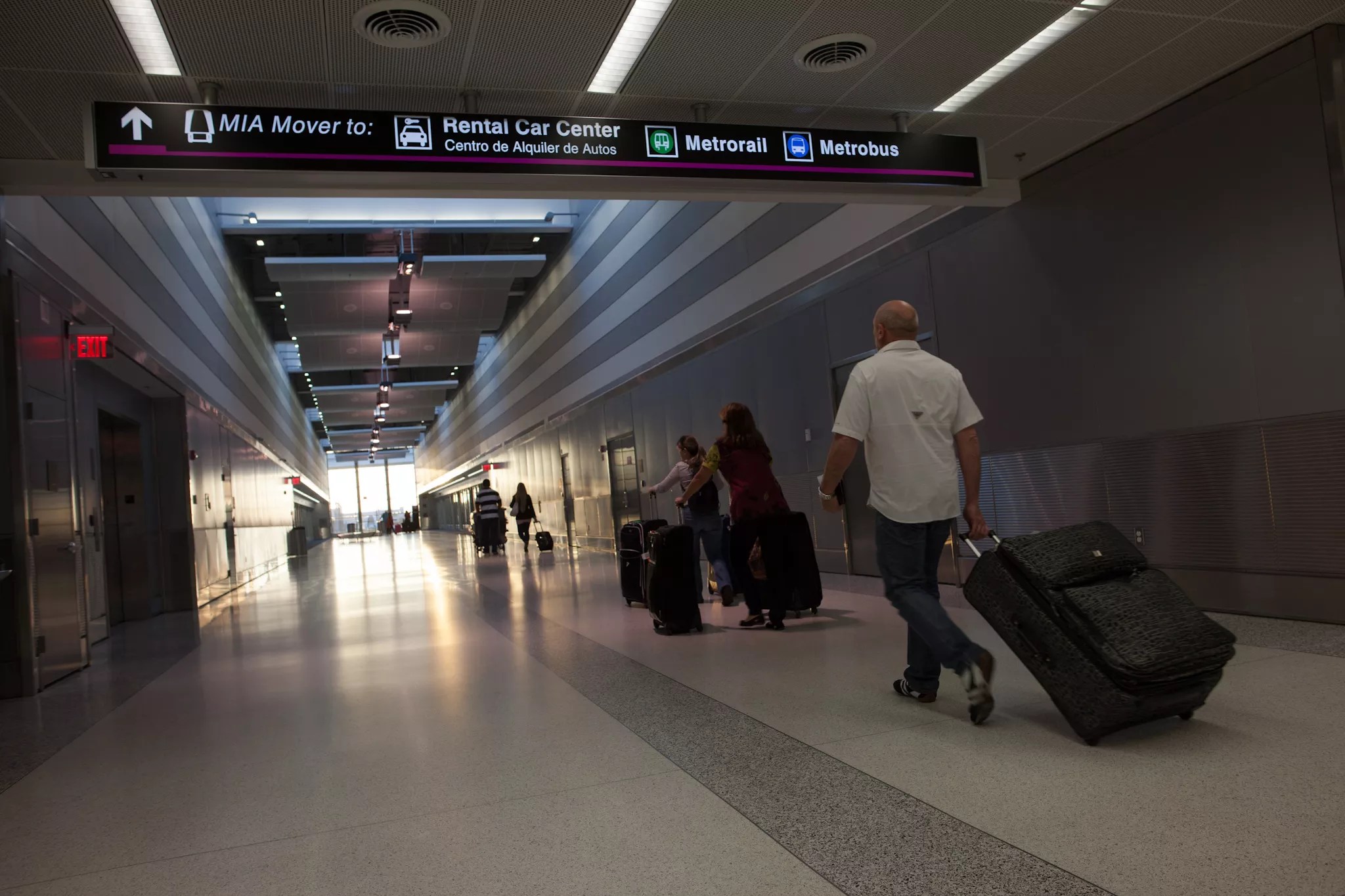
Jimmy Baikovicius / Flickr

Audio By Carbonatix
Few American airports shuttle more travelers out of the country than Miami International. But many travelers who’ve flown internationally from MIA since October have been stopped by agents from the U.S. Department of Homeland Security (DHS) and guided to a small kiosk with a camera inside that resembles an iPhone the size of a shoebox.
The tiny boxes take facial scans of thousands of travelers departing from nine airports – in Atlanta, Chicago, Las Vegas, New York City, Houston, D.C., and Miami. Homeland Security rolled out the so-called biometric exit technology at MIA in October, but a group of Georgetown University legal advocates released a report just before Christmas detailing the many terrifying and unanswered questions about the new data-collection program. They demanded the federal government stop needlessly collecting sensitive data on thousands, if not millions, of people exiting the country.
The Georgetown legal experts call the program a “solution in search of a problem” and say that “neither Congress nor DHS has ever justified the need for the program.” Homeland Security claims the cameras could stop impostors from fleeing the country under fake names, but privacy advocates note “neither Congress nor DHS has ever justified the need for the program.”
In fact, the lawyers claim Homeland Security installed the $1 billion national camera system (raised from surcharges on certain visa applications) without following proper federal rules, so the entire program might be illegal:
[Homeland Security’s] biometric exit program also stands on shaky legal ground. Congress has repeatedly ordered the collection of biometrics from foreign nationals at the border, but has never clearly authorized the border collection of biometrics from American citizens using face recognition technology.10 Without explicit authorization, DHS should not be scanning the faces of Americans as they depart on international flights – but DHS is doing it anyway.11 DHS also is failing to comply with a federal law requiring it to conduct a rulemaking process to implement the airport face scanning program – a process that DHS has not even started.
Though it’s arcane, that “rulemaking” process is important because it’s the method by which the public is allowed to comment and voice concerns about federal policies. (Courts forced Homeland Security to undergo the same process when it rolled out full-body airport scanners a few years ago.) In July, the Trump administration ordered the process be started, but by the end of the year, no one had bothered.
And, of course, no government-technology story would be complete without a dose of old-fashioned incompetence: Georgetown’s lawyers warn the program likely doesn’t even work that well. For one, DHS has no idea whether face-scanning technology catches perpetrators because the department has never studied the technology. Moreover, the lawyers warned that Homeland Security hasn’t set benchmarks to study whether the technology actually nabs anyone.
Plus, the cameras often screw up. According to Georgetown’s figures, roughly one in 25 people with good credentials might be flagged as fraudulent by accident. According to government documents, the technology works by finding photographs of each person on a flight’s manifest and then comparing those images to the ones taken at the security gate. The problem is, computers still have trouble matching people to their passport photos.
“At this high rate, DHS’s error-prone face-scanning system could cause 1,632 passengers to be wrongfully delayed or denied boarding every day at New York’s John F. Kennedy (JFK) International Airport alone,” the report reads. “What’s more, DHS does not appear to have any sense of how effective its system will be at actually catching impostors – the system’s primary goal.”
After news of the report made its way through a few national media outlets, U.S. Sens. Mike Lee (R-UT) and Edward Markey (D-MA) sent Homeland Security Secretary Kirstjen Nielsen a joint letter expressing major concerns with the program and asking DHS to explain itself. (The letter, however, stopped short of demanding an end to the program.)
In statements sent to the New York Times at the end of last month, Customs and Border Protection officials (who administer DHS’s program) assured the public that the technology has helped catch people traveling using fraudulent documents. (The Times also noted that countries in Europe, Asia, and Africa use similar technology.) But rights advocates warn there aren’t enough – or really, any – rules in place to force the government to administer the scans safely.
“The privacy concerns implicated by biometric exit are at least as troubling as the system’s legal and technical problems,” the study reads. “As currently envisioned, the program represents a serious escalation of biometric scanning of Americans, and there are no codified rules that constrain it.”